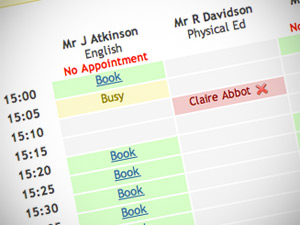Staff well-being
I learnt that the first week in February is the peak for unexpected staff absences globally and Tuesdays the highest for unplanned leave (Friday the day where staff are least likely to be absent in case you were wondering). January (34%) and February (32%) the highest months, July (17%) and December (15%) the lowest. With this awareness, how can we make improvements to our annual scheduling for schools? Is it even feasible to accommodate this knowledge?
Voice an important tool
This week I picked up a sore throat. No morning run, early to bed. What did I learn when my voice faltered? It gave me pause for thought for teachers with ‘softer’ voices. It made me reconsider my voice as a key teaching tool. It made me use non-verbal communication more. It made me more selective about which questions I answered. I adapted my days teaching tasks, drawing on Digital Theatre Plus productions and drawing on the class as a resource. It also led to this Act 3 Scene 3 Othello puzzle that really got the students’ thinking. (It got me thinking trying to create it too). The class response and investment in solving it definitely encouraged me to create others.

How do you prepare for Parents Evening?
I think there may be an individual post in answering this question but for now… here is my answer?
I remind students that it is really a privileged to meet their parents or carers. I use Parents Evening as an incentive to raise book work standards and get any loose sheets stuck down!
I check my markbook (all assessment entered, conditional formatting). I make sure all the latest info sent home to parents / reports is added. I filtered the class by the aggregated grade (there were a few movers) and look at the range. Any below par grades for “Effort / Behaviour” already communicated via the report are highlighted. Enlarged for easy checking before each appointment, I print a hard copy so that I am not reliant on technology.
I prep three strengths (these tend to be academic), and one specific academic area for each student to focus on to improve. If applicable, the personal learning/organisation.equipment concerns are raised here.
What did I take to Parents Evening?
- Appointments schedule.
- Watch (sticking to time is so important).
- One-page markbook.
- Curated resources booklet – shared digitally with students.
- Student books in appointment order.
I always stand to welcome and thank parents for their support. As [student name] report shows, Y is [insert your schools terminology] (Exceeding, excelling, on track…) I offer a clear statement of attainment taken from the previous eight assessments from the markbook. (From the meetings, the aggregated grade builds confidence that as a teacher I know their child.) [student name] strengths, academic then any positive, personal comments. I then grab their book. To close the meeting, I’d like to show you their books. You can see from [students name] work, they take pride / they could take more pride in their work. One area to accelerate their learning is…
Reflecting, I felt that parents generally liked seeing their children’s work and I think that this is a legacy from Primary school. In my professional view, this short interaction supports all the in-class efforts to maintain exemplary exercise books.
I have to say, I had more than my fair share of talented, hard working students effort to celebrate.
Puzzle Solution
Cassio’s Kryptonite – repairing his reputation. Desdemona’s Kryptonite, her kindness. These two characters and their subsequent conversations were set up in advance by Janus (Iago). Iago ‘Ha’ then baits Othello, no once but twice before Desdemona efforts and persistence to seek a ‘private check’ with Othello (some times I think that Desdemona doth persist too much) conclude with her playing her ace card. Her love for Othello. Othello concedes. Exit Desdemona. Maybe I’ll have a go at the next section too.


